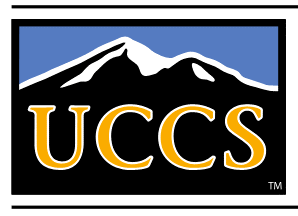
*Daphne T. Greenwood, Ph. D. is professor of economics and director of the Colorado Center for
Policy Studies at the University of Colorado Colorado Springs. In addition to serving in the Colorado
House of Representatives from 1990‐1994, she has been a visiting scholar at the U. S. Treasury
Department and the Institute for Research on Poverty, University of Wisconsin‐Madison, Honors
Professor at the U. S. Naval Academy and a corporate economist with Esmark, Inc. Dr. Greenwood
authored a recent award winning book on local economic development in the United States and has
published widely in the public policy arena.
She authored a study for the Colorado Center forPolicy Studies, adjunct to the University of Colorado at Colorado Springs, entitled: “The Decision To Contract out: Undestanding The Full Economic and Social Impacts.” (click for full article)
*Her Key Findings include:
Outsourcing to private corporations undermines principles fundamental to our democratic system by creating conditions such as:
Reduced accountability, transparency, and clarity about who’s in charge
Frequent conflicts of interest and nepotism and fewer whistleblower protections
Removing control of key public decisions from citizens and their elected officials
Contracting can involve substantially lower wages and benefits for local workers providing services, siphoning dollars away from local economies. Workers making less will spend less in their own communities. That leads to many direct and indirect economic and social impacts including:
Declining retail sales and potential impacts on the housing market
Higher wage gaps between men and women, and between blacks and whites
More workers forced to rely on public assistance
Fewer middle class jobs and wages for everyone
Reduced ladders of opportunity for workers at the bottom
Perpetuating low incomes for more female‐headed households
A larger share of “at risk” children in lower‐income families
Weakened viability of pension systems for remaining public workers
Private corporations’ profit imperative does not always lead to efficiency or quality
Cuts to workers’ wages and benefits deliver short‐term profits to shareholders but . . .
Reduced staffing levels and lower pay often lead to higher turnover, lower quality of services,
and potential health and safety issues
Problems with the quality of services provided to citizens cited in 61% of contracts terminated
Outsourcing and contracting are not really “privatization”
Responsibility for determining how public tax dollars are spent still lies with public officials
Public services are funded by public dollars regardless of who provides them, but ..
Local tax dollars now go to corporate profits, administrative costs and taxes in other jurisdictions
Cost savings of outsourcing vary widely and often diminish over time
Average costs may be lower initially (studies show an average of 5‐10%) but often shrink over
time because of reduced competition and other factors
Governments cited insufficient savings 52% of the time when ending private contracts
Cost savings are often achieved at the expense of reduced wages and benefits for workers
UNLESS THERE IS REAL INNOVATION THAT LEADS TO GREATER EFFICIENCY OR HIGHER QUALITY
COMMUNITIES WILL SEE A NET NEGATIVE EFFECT ON THE WIDER SOCIAL AND ECONOMIC LEVEL
Click on any of the links above to read more of this facinating study.
*used with grateful appreciation from the author, Dr. Daphne T. Greenwood.

